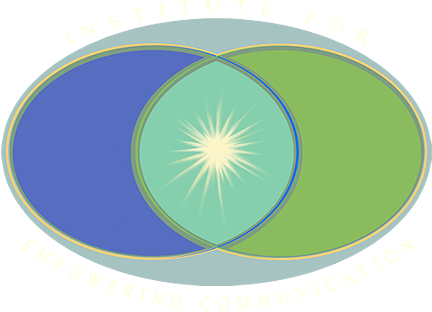Supporting personal & professional growth.
Teachers and Administrators

"Today a male student, age 21, came into my office and told me how Nonviolent Communication has changed his life. He was so excited about the possibilities that he insisted on shaking my hand several times and expressing his gratitude about learning NVC. This student had previously been in trouble with the campus police, and sometimes tried to solve disagreements with physical violence. He said that knowing the NVC tools has reduced his stress so much, that even his girlfriend notices how much calmer he is. He rates the NVC class as one of the 5 best classes on campus - after 4 years of college courses - because it actually was practical and taught him skills he really needs. I have dozens more stories like this! Why do I teach NVC? Young people are embracing NVC because it really works ... There is no limit to the joy you can feel when you see young people getting a chance early in life to become empowered via NVC to make their lives wonderful!"
~ Dhira Crunkilton, Ph D
Assistant Professor of Social Work
Southeast Missouri State University
Increase safety in the classroom and school
Enhance scholastic achievement through relationship
Access and engage children's joy of learning
Teach emotional intelligence to solve conflict peacefully
Empowering Communication (EC), our preferred name for Nonviolent Communication, offers schools a unique set of skills that can be effective for teachers, administrators and students and any combination of these relationships. Whether your school would like to start a Social Emotional Learning (SEL) Program using Empowering Communication as the base, or whether you seek to augment and strengthen an existing SEL program, we are equipped to customize a program for your school. We can help you access and evaluate the large variety of the published materials available for use in ways that are most effective for your school. In addition, EC can significantly reduce violence and increase safety in schools and classrooms.1 2 By deeply understanding the unspoken needs of students who engage in violence, we are able to teach them to meet their needs in safe and effective ways. Our training can target a pilot group of teachers and classrooms, a school or an entire district.
I no longer directly teach Nonviolent Communication to kids -- I live it first. I show them what it feels like to share power, to create an environment that is based on mutuality, safety, and trust; and offer them support through conflict that doesn't take a wrong and right side approach. There are many activities, then, after living differently in the classroom, that can be used to heighten awareness about children having needs ... choices they make to meet those needs ... and meaningful purpose in being together in school. I literally see kids transform in front of my eyes when I hear them ask another child what they were wanting when they made "that" choice, or when I see them finding ways to nurture each other, and I have been dumbfounded by their honesty with me when they feel the safety of their environment.
~ Judith Stuart Coale
Third Grade Teacher
"If we learn to open our hearts, anyone, including the people who drive us crazy, can be our teacher."
~ Pema Chodron
1. "The data show that SEL programs yielded a strong benefit in academic accomplishment, as demonstrated in achievement test results and grade-point averages. In participating schools, up to 50 percent of children showed improved achievement scores and up to 38 percent improved their grade-point averages. SEL programs also made schools safer: incidents of misbehavior dropped by an average of 28 percent; suspensions by 44 percent; and other disciplinary actions by 27 percent. At the same time, attendance rates rose, while 63 percent of students demonstrated significantly more positive behavior. In the world of social science research, these remarkable results for any program promoting behavioral change, SEL had delivered on its promise."
~ Goleman, Daniel. Emotional Intelligence. Bantam Books, 1995.
2. Ignjatovic Savic, Nada. "Overview of the projects implementing the programs of Nonviolent schools and kindergartens in Serbia and Montenegro." 1993-2004.


